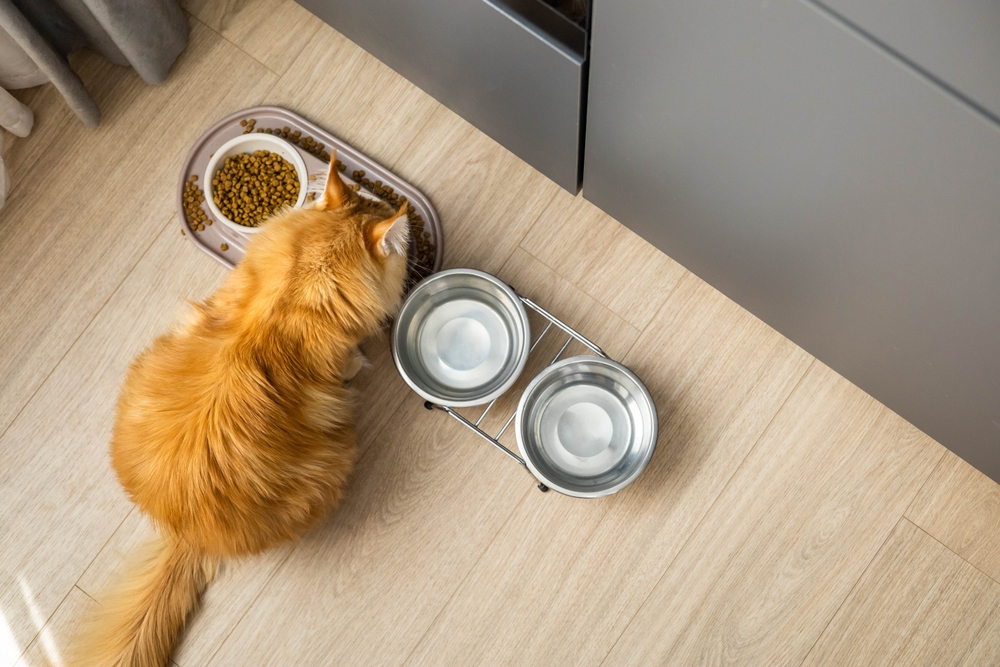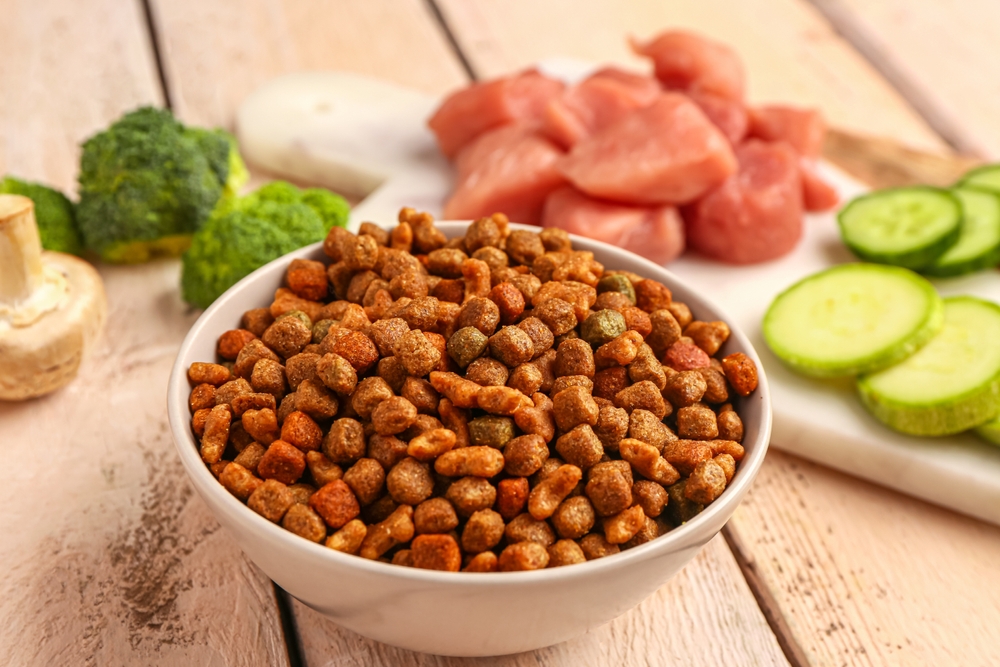Our furry friends require a balanced diet to maintain their health and vitality. However, nutrition myths sometimes get in the way of providing them with the appropriate food. Understanding the truth behind these myths can help you avoid unhealthy foods for your pet. The Pony Express Veterinary Hospital team debunks a few popular myths so you can make better choices for your four-legged friend.
Myth 1: Dogs should eat a grain-free diet
Grain-free diets are often marketed as healthier and more natural for dogs, suggesting that grains are a common cause of allergies and health issues.
Reality: Some dogs may have specific grain allergies, but they are relatively rare. Most dogs can digest grains and benefit from the nutrients they provide, such as fiber, vitamins, and minerals. In addition, a study by the U.S. Food and Drug Administration (FDA) has linked specific grain-free diets to an increased risk of heart disease in dogs, specifically dilated cardiomyopathy (DCM). It’s crucial to consult with The Pony Express Veterinary Hospital team before making any significant changes to your pet’s diet.
Myth 2: Cats can eat a vegetarian diet
The idea behind this premise is that cats can thrive on a vegetarian diet with the right plant-based proteins and supplements just as humans can.
Reality: Cats are obligate carnivores, requiring nutrients found only in animal products. Essential nutrients such as taurine, arachidonic acid, and vitamin A are vital for feline health and are found primarily in animal tissues. Without these nutrients, cats can suffer from life-threatening health problems, including heart disease, vision issues, and a weakened immune system.
Myth 3: Table scraps are healthy for pets
Sharing your food with your pet is a harmless way to bond and provide them with various foods, right?
Reality: Many human foods are unsuitable or unsafe for pets and can lead to vomiting, diarrhea, and other health problems. In addition, foods such as chocolate, grapes, raisins, onions, garlic, and the artificial sweetener xylitol are toxic to pets. Feeding pets table scraps can also lead to obesity and obesity-related conditions, including diabetes.
Myth 4: Raw diets for pets are the healthiest option
Raw diet promoters claim that these diets are more natural and closer to what pets would eat in the wild, and thus provide superior health benefits.
Reality: While raw diets can provide some nutritional benefits, they also have significant risks. Raw meat can contain harmful bacteria, such as salmonella and E. coli, which can be dangerous to pets and humans. Without the correct balance of nutrients, these diets also may not help your pet maintain their health. Pet owners considering a raw diet for their pet should do so under the guidance of our veterinarian to ensure all nutritional needs are met.
Myth 5: All pet foods are the same

This long-standing idea that commercial pet foods all provide the same nutritional value suggests that it doesn’t matter which brand or type you choose.
Reality: Pet food brands can vary widely. Factors such as ingredient quality, nutritional balance, and manufacturing practices all play a role in determining overall quality. It’s important to choose a reputable brand that uses high-quality ingredients and adheres to stringent safety standards. Look for pet foods labeled “complete and balanced” by the Association of American Feed Control Officials (AAFCO). Our team can also recommend diet choices for your furry friend during their wellness exam.
By informing yourself about common myths, you can help ensure your furry friend receives the correct, nutritious diet for a healthy, vibrant life. Do you have questions about your pet’s diet? Schedule a nutrition consultation with The Pony Express Veterinary Hospital team.

